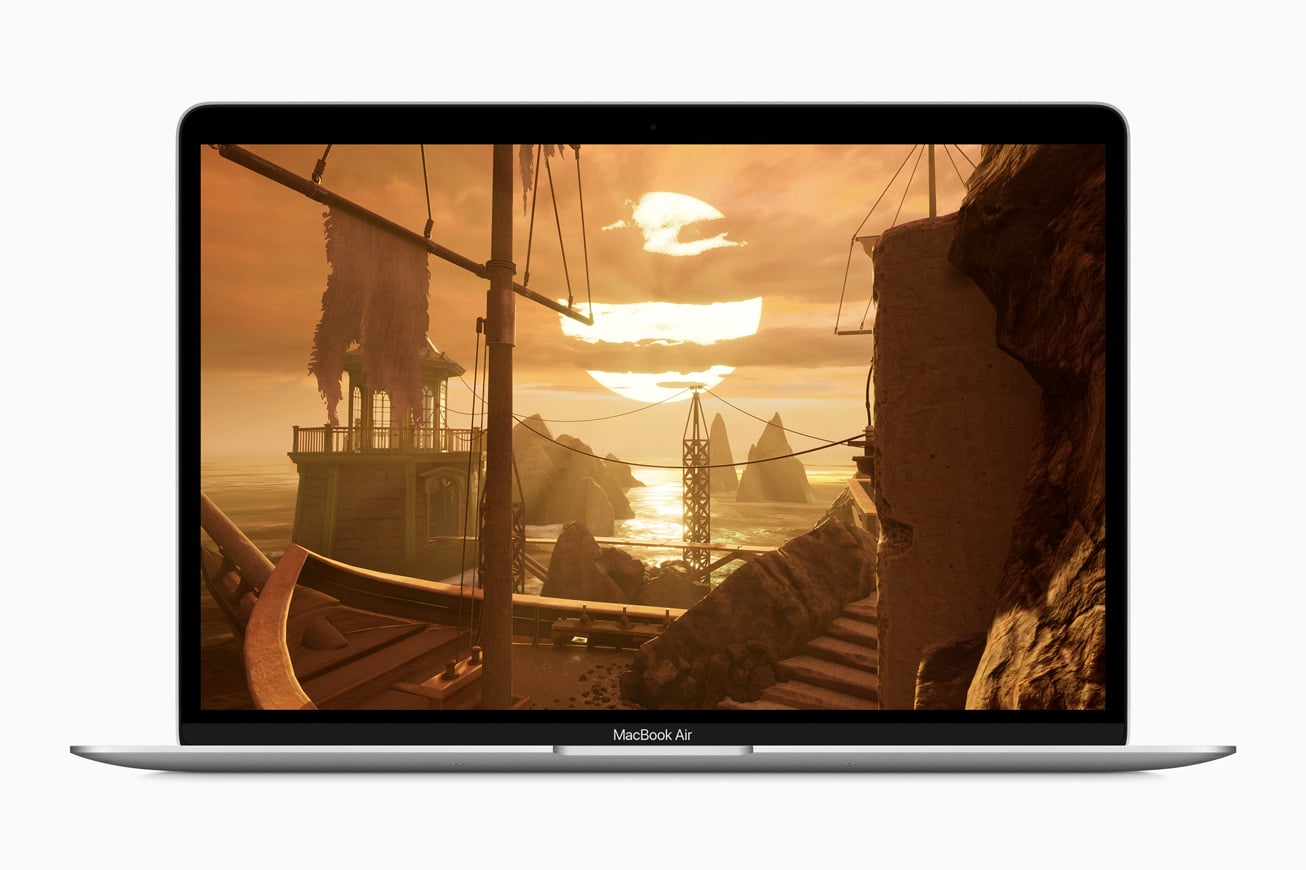The Apple A3 series processors make the latest Macs into powerful gaming machines. And macOS Sonoma includes tools to make porting PC games to Mac much easier. As a gamer myself, these are very welcome moves.
But right now, Apple is taking a “build it and they will come” attitude. History shows there’s an important step needed to turn Mac into a serious competition for PC and gaming consoles: CEO Tim Cook and Co. need to put their money where their mouths are and financially encourage top game developers to bring their products to macOS.
That might even include buying one or more game developers.
Why ‘Mac gamer’ is a contradiction in terms
There’s an important tool every serious Mac gamer needs: either a PC or a console. It’s sad but true.
In the early days of the personal computer, Mac and PC ran pretty much neck and neck. Major games were released for both platforms. I played some amazing Mac games back in the 1980s and early 1990s.
As Inverse points out in a recent article, the divide came when Intel processors improved faster than the PowerPC chips the Mac depended on. Year after year, the performance difference grew wider.
Apple switched to Intel in 2005, but then the problem was that PCs provided better support for the high-end GPUs that top-tier games depended on.
Apple makes powerful gaming hardware
Happily, the days when playing high-end games required a PC or console might be drawing to a close.
For one, Apple’s M series started out powerful in 2020 and just keeps getting better. The chips offer not only raw computational performance but also formidable graphics capabilities. That makes them well-suited for gaming — and that didn’t happen by accident.
“Gaming was fundamentally part of the Apple silicon design,” Doug Brooks from Apple’s Mac product marketing team, told Inverse. “Before a chip even exists, gaming is fundamentally incorporated during those early planning stages and then throughout development.”
If there’s any doubt, look no further than Dynamic Caching in the new M3 series. Unlike traditional GPUs, Apple GPUs use only the exact amount of memory needed for each task. This significantly increases the performance of the graphics processing unit when running demanding games.
The M3 also offers hardware-accelerated ray tracing — a first for the Mac. Plus there’s hardware-accelerated mesh shading. Both improve the look of high-end games.
Apple game-related software ain’t so bad, either
On the software side, macOS Sonoma offers Game Mode, which prioritizes processing power when gaming for a better experience, including smooth frame rates. And it doubles the Bluetooth sampling rate to reduce audio latency with AirPods while also reducing input latency with Xbox and PlayStation controllers.
In addition, Apple released the Game Porting Toolkit to help developers port their games. It can translate PC-specific code to macOS. It’s not as simple as plugging a PC game into the GPT and getting a Mac game out, but it reduces the work considerably.
You need look no further than the recent release of Stray (and our review) for proof of the new gaming capabilities of the Mac.
Taking the next step
Add in the beautiful displays and very capable speakers built into MacBook and iMac and you have the potential for a heck of a gaming computer, whether desktop or laptop. Unfortunately, that potential might go unfulfilled.
Gamers and developers are in a “chicken or the egg” situation. Speaking as a gamer, I’m not putting down big bucks for a first-class Mac just so I can play games on it until there are plenty of titles available. But game developers aren’t going to port their games to macOS unless there are plenty of gamers with high-end Macs.
It all comes down to money. Porting a game to a new platform and supporting it with updates and patches is expensive. And on the other side of the coin, buying a high-end Mac to play games is expensive for users. Neither side wants to go first.
The best solution I see to break the logjam is for Apple to subsidize the cost of porting PC games to macOS. At least at first, until the Mac gaming market stabilizes.
The company might even have to go so far as to buy a major game developer or two. As Inverse pointed out in its recent article, that’s how Microsoft made Xbox the giant it is today. Bungie introduced the first version of its ground-breaking first-person shooter Halo at MacWorld in 1999, but Microsoft bought the company and made Holo the centerpiece of its game console.
Apple has the deep pockets needed for that sort of buyout, and Apple-owned developers would absolutely offer Mac versions of whatever titles the game developer releases. (As a side benefit, these probably would go to iPad and iPhone, too.)
Short-term expense, long-term benefit
There’d be a major outlay of cash, whether Apple subsidizes multiple game developers or buys one or two, but the company’s bottom line would benefit in the long run.
In future years, Cupertino is going to have a harder and harder time convincing average customers they need the newest Macs. The most basic, inexpensive M3 is really all most consumers need for web browsing and social media for at least five years. But gamers want and need more powerful, pricier computers. And they upgrade more often to keep up with the ever-growing demands of AAA games.
There are 892 million PC gamers (and 629 million on console, BTW). I’m on that list, as are many other people who use a Mac for everything but gaming. We represent lost revenue for Apple.
It can capture that revenue in the future, and turn me and my friends back into Mac gamers … but only if the company opens its wallet to let money pour over game developers.


